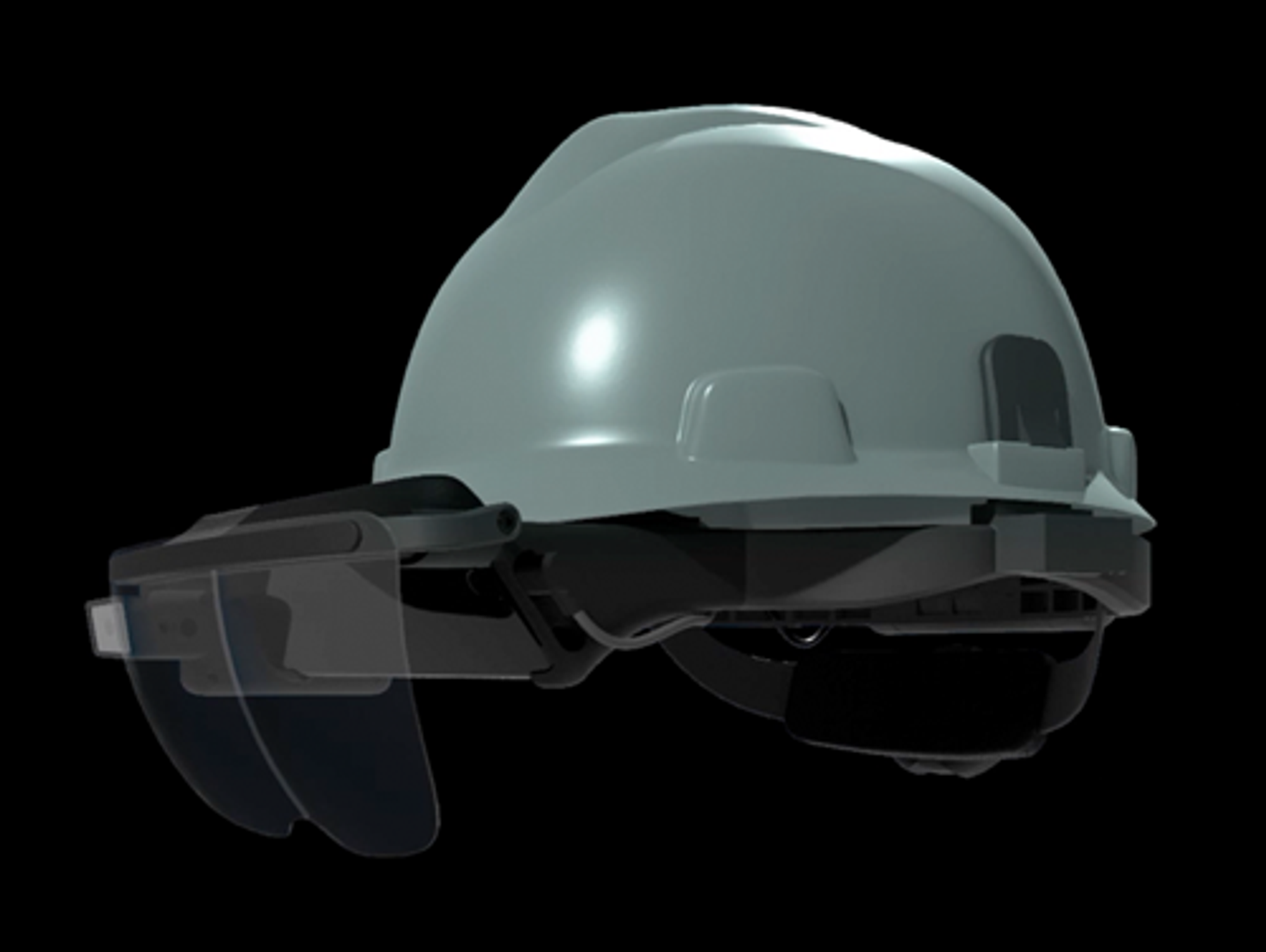Mira is Bringing Low-Cost Augmented Reality to Workers' Hard Hats
Francesca Billington is a freelance reporter. Prior to that, she was a general assignment reporter for dot.LA and has also reported for KCRW, the Santa Monica Daily Press and local publications in New Jersey. She graduated from Princeton in 2019 with a degree in anthropology.

Mira, the augmented-reality startup based in Los Angeles, announced last week it raised $10 million in funding led by Sequoia, Happiness Ventures and Blue Bear Capital.
The company has been developing software that aims to streamline workflow and connect supervisors and workers remotely.
Co-founders Ben Taft, Matt Stern and Montana Reed began work on their prototype as students at USC's Jimmy Iovine and Andre Young Academy for Innovation. At the time, Taft worked at Daqri, an L.A. startup building an expensive AR-enabled hardhat helmet for industrial workers. Stern and Matt had previously helped build Sony's first Playstation VR.
Together, the trio pulled together the money to buy the only developer kit available at the time, the Microsoft Hololens. But the complicated interface and steep price tag meant most businesses couldn't deploy it at scale, Mira's 24-year-old CEO Taft told dot.LA. In 2017, he and his co-founders launched the Prism Pro, a smartphone-powered AR headset costing a fraction of the price of leading devices.
"The point of it was to open up a conversation of why AR is important," Taft said. "And invite different perspectives and people into the conversation who may not have had access or opportunity to participate in that discussion before, when those devices cost $10,000."
The prototype led them to Sequoia and other early investors. For $99, a consumer could pop their iPhone into the device and open the Mira software app to send images and data directly to colleagues across the world who can provide assistance on the spot.
After the launch, Mira heard from consumers using their product for a range of applications, from research to gaming‚ but they saw the strongest demand from a different type of consumer: the enterprise and industrial sectors.
An explosives packaging company in Australia sent Mira's team a letter about gluing the developer kit into a hardhat. The startup's next move was clear — they soon launched a second weather-proof version designed to last in rugged environments.
"They viewed this as an opportunity to provide a hands-free working paradigm to the front-line workforce, to make their work and lives safer, faster and more efficient," Taft said.
Unlike other AR headsets, Mira's is operated entirely by an iPhone. This means consumers don't need to buy a new computer to run the software. Plus, a lot of these big companies already have experience managing mobile devices at scale.
Using the Mira Flow tool, company supervisors can compose and send checklists to machine operators, a process typically done on paper. Once the employee puts on Mira's device, the workflow appears on the screen, guiding them through each step as the camera documents the procedure for their supervisor.
The company's second tool, Mira Connect, allows remote employees to video chat in with operators on the ground and guide them through processes.
"It's like a hands-free FaceTime call with an added see-what-I-see augmented reality element to make things so you can transfer expertise to anyone in the world remotely," Stern said," as if you were standing over their shoulder and guiding them."
And as COVID limits international travel, these industries have begun to rethink communication and problem solving, Taft said. Mira has seen usage spike on the Connect tool.
With the new funding, the company plans to ramp up hardware production and expand its engineering and sales teams in L.A.
"Our sales are growing incredibly quickly this year," Taft said. "We'll be hiring a lot more sales people to continue our momentum and continue to capitalize on gaining the market share that we have been rapidly obtaining over the past six months."
- Virtual Reality and Augmented Reality Take Off in the Video Game ... ›
- Topia Virtual Platform Raises $5 Million Seed Funding - dot.LA ›
Francesca Billington is a freelance reporter. Prior to that, she was a general assignment reporter for dot.LA and has also reported for KCRW, the Santa Monica Daily Press and local publications in New Jersey. She graduated from Princeton in 2019 with a degree in anthropology.





 Image Source: Skyryse
Image Source: Skyryse